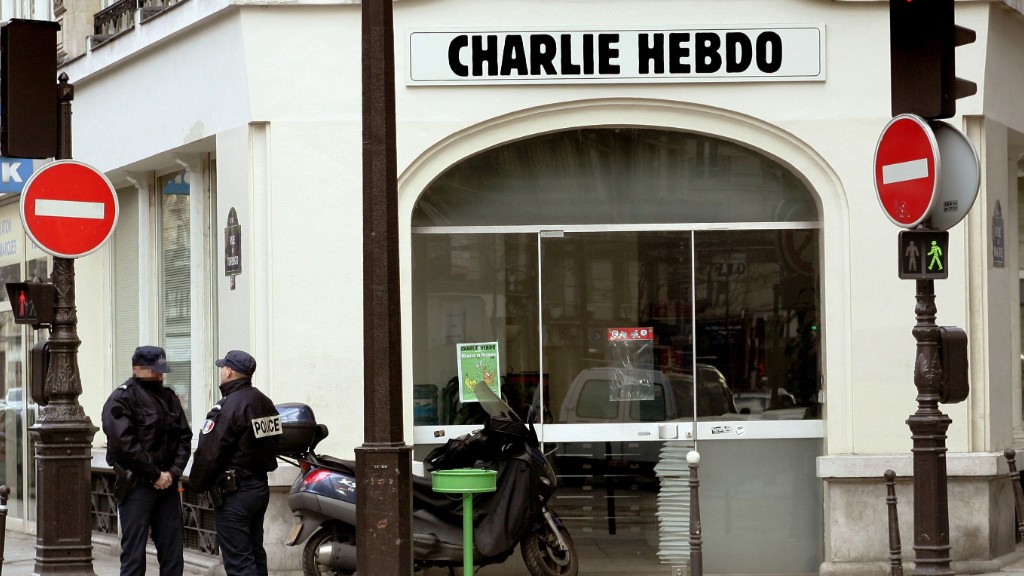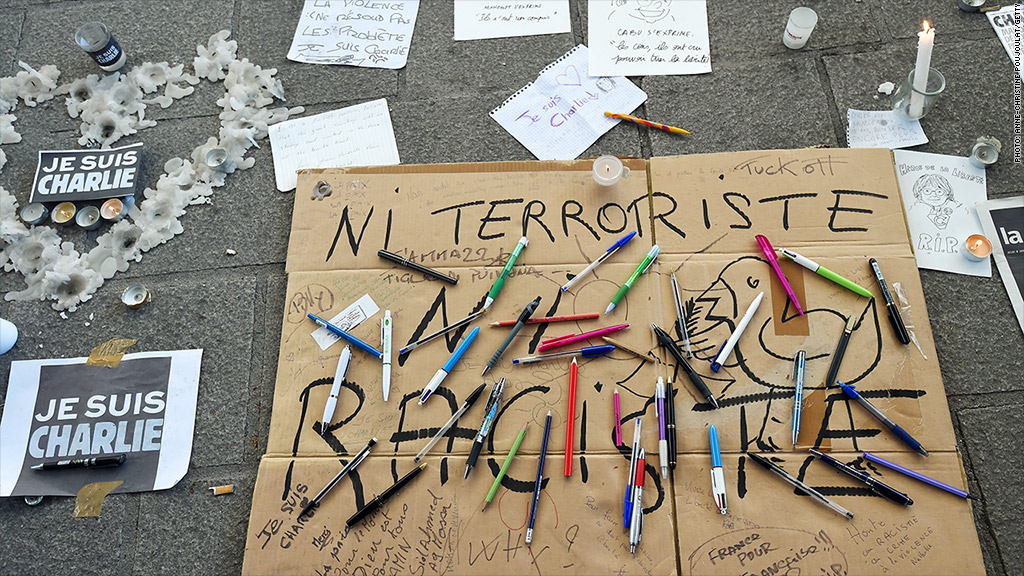
There's been an outpouring of tributes for Charlie Hebdo following Wednesday's massacre in Paris -- from Jon Stewart and Conan O'Brien to scores of journalists throughout the world.
But some others are pushing back, contending that much of the magazine's work has been crass and not worthy of such high praise.
Charlie Hebdo didn't just skewer Islam, as it did with its notorious and much-discussed depictions of the Prophet Mohammed. Christianity and Judaism were also targets of the magazine, along with other groups.
One cartoon portrayed France's black Justice Minister Christiane Taubira as a monkey. Another mocked the sex slaves of the militant group Boko Haram. An issue that followed the death of Michael Jackson depicted the pop star as a skeleton with a caption suggesting he realized a dream to be a white man.
Defenders of the magazine have been quick to note that in the portrayal of Taubira, for example, the intent was to mock her prejudiced detractors.
Nevertheless, the satire hasn't been universally celebrated.
Writing for Jacobin Magazine, the author Richard Seymour drew a distinction between mourning the deceased and extolling Charlie Hebdo's satire.
"Now, I think there's a critical difference between solidarity with the journalists who were attacked, refusing to concede anything to the idea that journalists are somehow 'legitimate targets,' and solidarity with what is frankly a racist publication," wrote Seymour.
Stephane Charbonnier, the editor of Charlie Hebdo who was among the 12 killed in Wednesday's attack, had disputed charges of racism.
In a piece written in 2013 that was republished by the Toronto Star, Charbonnier wrote that "anti-racism and a passion for equality among all people" were "founding principles" of the satirical publication.
"We refuse to run away from our responsibilities," Charbonnier wrote. "Even if it's not as easy as it was in 1970, we'll continue to laugh at the priests, the rabbis and the imams -- whether that pleases people or not. Are we in the minority on this? Maybe, but nonetheless we are proud of our traditions. And those who maintain that Charlie is racist should at least have the courage to say it loud, and under their own name. We'll know how to answer them."

Since Wednesday's atrocity, many have suggested that the republication of the magazine's Mohammed cartoons -- a dilemma that many news outlets wrestled with -- was the clearest way to show support for western principles such as freedom of expression.
But others, like the Pulitzer Prize-winning journalist Glenn Greenwald, have challenged this narrative.
"When did it become true that to defend someone's free speech rights, one has to publish & even embrace their ideas?" Greenwald said on Twitter. "That apply in all cases?"


